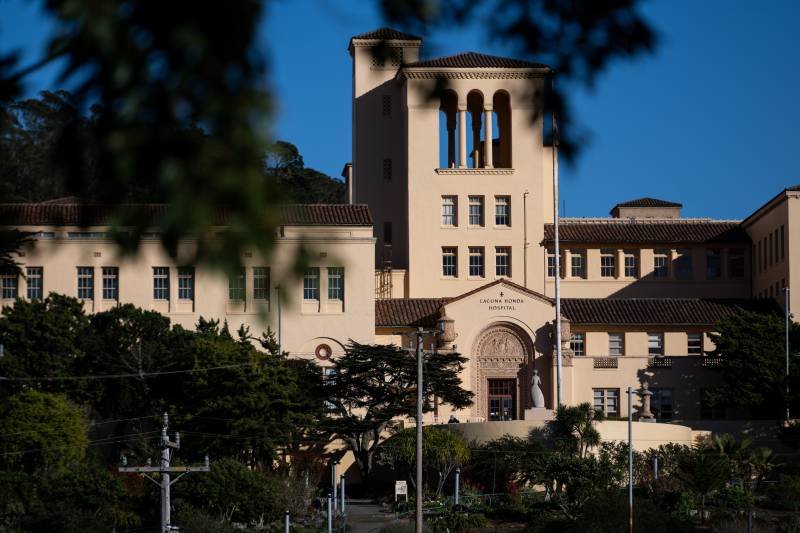Amid other challenges, Laguna Honda Hospital and Rehabilitation Center in San Francisco has been grappling with a COVID-19 outbreak that has outpaced those in some previous years of the pandemic.
The latest uptick in cases arrived at a particularly tough time. The hospital is facing a major regulatory crisis that threatens to close the 153-year-old public skilled nursing facility, home to more than 500 residents, many of whom require high levels of nursing care.
COVID “cases were generally mild, and many were asymptomatic and identified due to Laguna Honda’s proactive testing of entire units until no new cases are identified for 14 days,” a spokesperson for Laguna Honda said in an email on May 12. “Laguna Honda Hospital was a model for pandemic response, and we continue to respond effectively to COVID by slowing the spread of the virus on campus and caring for residents if they test positive.”
The largest resident outbreak in 2023 peaked in April at 79 cases, and as of May 15 there were 10 residents with active cases, signaling a significant downward trend.

